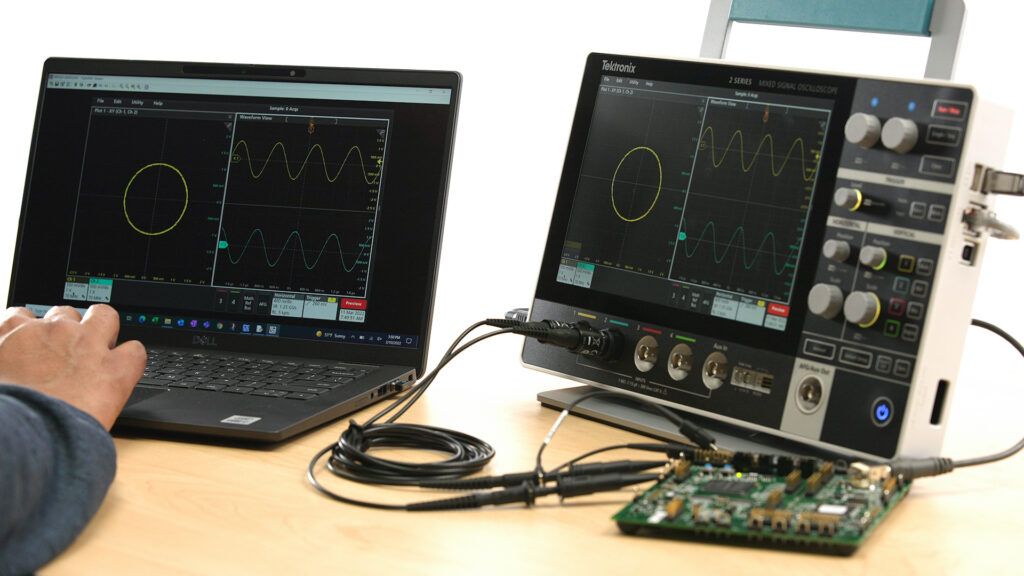Tektronix has launched a new oscilloscope series meant to “go seamlessly from the bench to the field and back”, calling it the “first portable oscilloscope to offer benchtop performance.”
The 2 Series MSO instrument is 1.5 inches thick and weighs less than four pounds, Tek says — small enough to fit into a backpack.

According to Tektronix, features of the instrument include support for bandwidths from 70 MHz-50- MHz; two or four analog channel inputs; 16 digital channels (which will be available with a future software release); a 2.5 GS/s sample rate; and an optional battery that provides up to eight hours of power. The company also said that future software releases will enable a built-in pattern generator, a voltmeter, and a frequency counter.
“This breakthrough product was a direct result of our proven Growth Accelerator innovation process and continued focus on our customers,” said Tami Newcombe, Tektronix president, in a statement. “Our team worked closely with engineers to deeply understand their unique needs. We cannot wait to see how the 2 Series MSO improves the way our customers work.”
In other test news:
–Anritsu has partnered with AeroGT Labs on solutions for 5G Multiple-In Multiple-Out (MIMO) Over-the-Air (OTA) testing. In particular, the companies said, their offering is useful for testing systems such as automobiles, which can have more than a dozen on-board antennas for communications, infotainment, safety and systems and more.
-Spirent Communications did some interesting latency testing of MEC and cloud, combined with asking enterprises about their willingness to pay for related SLAs for low-latency services. The upshot? There’s a pretty big disconnect between what current 5G networks can deliver (best-effort low latency) and what enterprises think they want (determinism). Take a read here.
–Rohde & Schwarz says that it now has specific testing profiles for embedded SIM (eSIM), developed in partnership with Comprion, for R&S network simulators such as its CMX500. Test profiles for mobiel devices including phones, tablets, wearables, consumer IoT devices and market-ready prototypes can be configured in the lab with the new downloadable profiles, the test company said. The test profiles are available via a subscription service from Comprion, Rohde added, and besides the specific test for Rohde & Schwarz equipment, it also includes a “repository of eSIM test profiles as well as a GSMA-standardized Remote SIM Provisioning service to deliver the test profiles to eSIM devices. This service is unique on the market,” R&S said.
-ICYMI: The U.S. Department of Defense’s testing of a private 5G network for smarter warehouse logistics continues, with AT&T this week providing an update that includes the tidbit that the AT&T private 5G network at the base delivered data throughput speeds of 3.9 Gbps with less than 10 milliseconds of latency. Read more details here.
–Keysight Technologies is working with test house Dekra to support 112 emergency call testing and location services for mobile phones sold into the European market. Keysight noted in a release that Keysight’s network emulation solutions enable DEKRA to validate E112-related test cases as of Mach 2022, a new mandate went into effect that requires all new mobile phones sold in the European Union to “support GNSS technology based on the Galileo constellation, advanced mobile location (AML) protocol and Wi-Fi communications technology” in order to pinpoint a caller’s location.
In other Keysight news, company representatives spoke at a couple of investor conferences this week. Read RCR’s coverage of remarks at the Baird 2022 Global Consumer, Technology and Services conference here.

